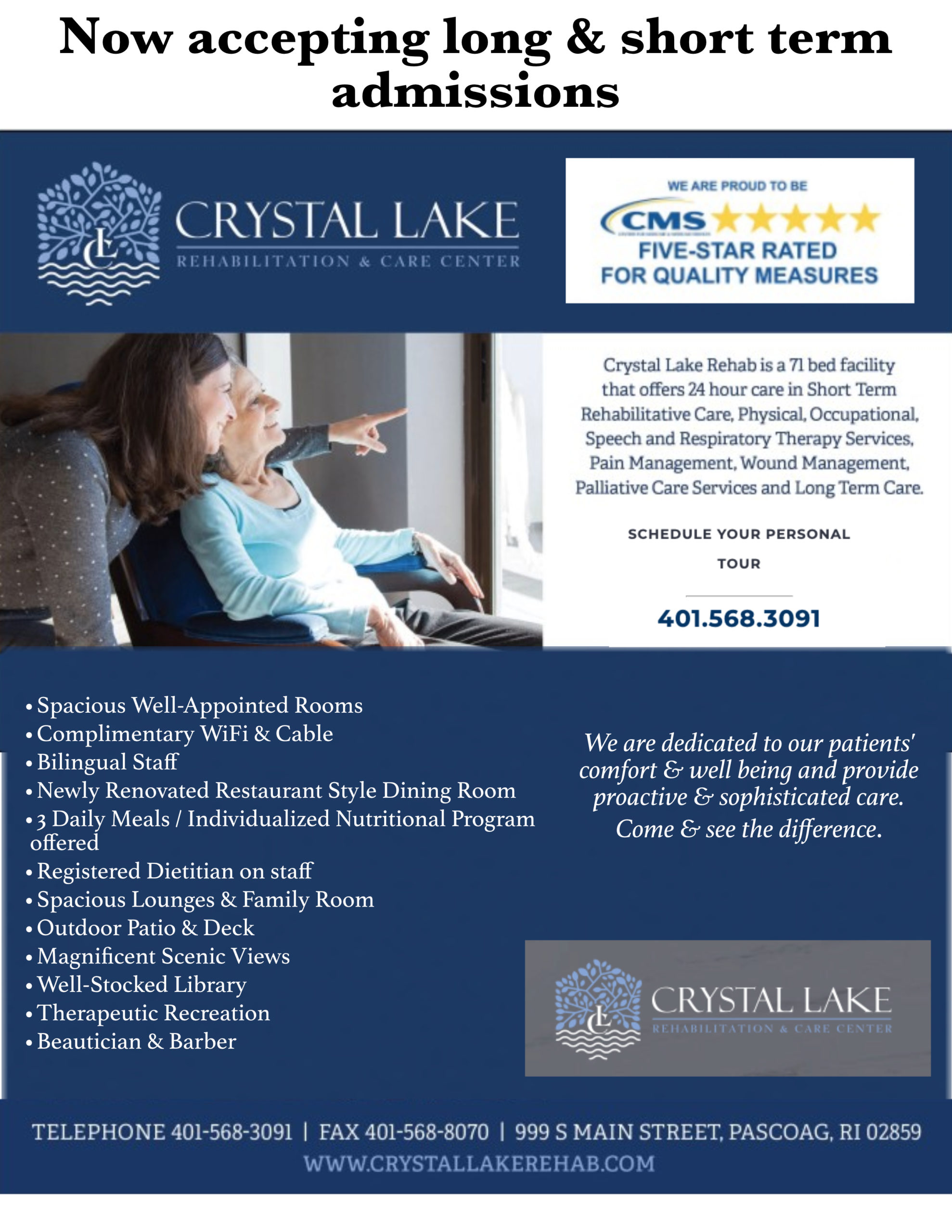Editor’s note: The below content is offered as part of our special Summer/Back In Business section. View the complete printable pdf here.
NORTH SMITHFIELD – The next several months are considered fun for most people. School is out for students, families take vacations, camping of all types begin and baseball is in full swing.
It is also a good time to remember the potential issues that arise. Beaches will be overcrowded during hot stretches, people suffering from heat stroke and other hot-weather ailments, pets looking for cooler shelters and other hazards. This can be especially true for seniors, who may live alone and not always be thought of when it comes to constant care.
Paul Jones, owner and lead concierge of The Care Concierge of New England in Slatersville, is now offering a possible solution. His company aids families looking to transition their loved ones into senior care facilities throughout Rhode Island and parts of Massachusetts and Connecticut.
One of the ways of doing this, Jones says, is offering “Respite Care options,” where the guest stays at a facility for up to 90 days and has all the amenities and privileges of a permanent resident.

Jones said this choice serves multiple purposes, and gives potential long-term residents a chance to see what’s out there.
“As the Care Concierge, I help seniors and their families navigate the different senior care options to find the best quality of life,” Jones said. “Too many families still conflate ‘assisted living’ with ‘nursing home’, and worry that exploring senior care is like consigning their loved one to some kind of torture. The reality is that the assisted living industry focuses on comfort and life enrichment. By taking advantage of a respite stay, my hope is that seniors can dispel some of the myths they may be holding onto regarding senior care, and stay safe through the summer heat in the bargain.”
Jones said that seniors are just as vulnerable during the summer as they would be during the winter holidays. Many people are more cognizant of their parents and loved ones during Thanksgiving and Christmas because of the potential for them not having heat in their homes. With summer, it’s not as obvious. Jones likened it to leaving small pets or children in a car. Vehicles can get hot inside fast and creating dangerous situations in the process. The same thing could happen with the elderly in their own homes before anyone realizes something is wrong.
As for helping those who may be “at risk,” Jones said this opportunity could clear up misconceptions about care.
Respite programs began as a way for seniors to assess the assisted living experience. It was thought of as a natural response to people being unclear about what assisted living was and how it differed from nursing homes. Assisted living as an industry is still relatively young — most of the large companies trace their roots back to the 1990s or early 2000s — and the irony is the people who are now age-appropriate for assisted living only ever had nursing homes to rely on for their own older loved ones.
“It makes sense that people who are in their 70s-90s today would have very limited knowledge about assisted living, so giving those seniors an opportunity to make a trial run as a resident is smart business sense,” Jones said. “Beyond that, there’s a genuine component of altruism and safety in offering respite stays. In the winter, there are commercials and articles and reminders frequently to check on elderly neighbors and loved ones who may be without heat. It sometimes feels taken for granted that the summer heat can be just as dangerous for isolated seniors.”
Jones notes that respite stays in the summer are a good and easy way for seniors to retain their homes and try an assisted living environment for the summer, and to enjoy all that entails being a permanent resident. Meals are prepared for them, housekeeping is done for them and leisure activities are planned for them.
“Assisted living can feel like a summer-long cruise for seniors, without ever leaving land,” Jones said.
Almost every assisted living community offers respite programs for interested seniors. A community may have a cap on how many apartments they reserve for respite stays, but part of the Care Concierge services is to help you secure a great respite apartment.
According to Jones, a respite apartment is easily accessible – as close to, “plug and play,” as it gets in the senior care world. A senior registers for either a 30, 60, or 90-day stay in an apartment, which is already furnished by the community. They bring whatever clothes, personal effects, etc., that they want, and decorate the apartment as they desire. A resident can receive any needed care services while they’re on the respite stay, such as grooming, shopping or medication management. They’re also free to enjoy the on-site restaurant three times a day, and participate in as many of the leisure activities as they would like. Housekeeping is provided, and laundry may be provided for a nominal fee.
There is a privately paid daily cost associated with a respite stay, but that is different from community to community. Sometimes these costs may be negotiated by someone like the Care Concierge, and sometimes they are fixed.
For more information contact Jones at The Care Concierge of New England by calling (401) 488-4935 or emailing [email protected].








